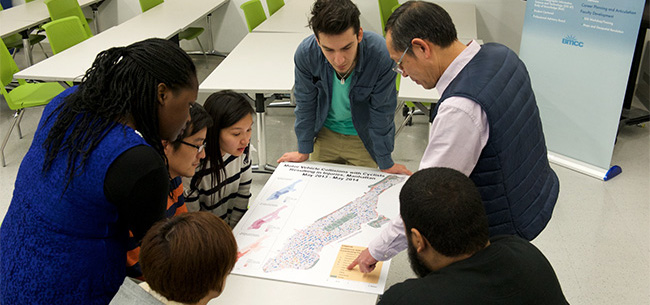
Professor Azhar’s current research involves the study of dialogues during human-robot collaboration. His other research interests include intelligent interface, computer science education, artificial intelligence, educational robotics, educational games, and interactive learning systems.
Professor Benkarroum’s research interests lie in the fields of computer vision and 3D reconstruction. His main research incorporates a variety of aspects, including mathematics, computer science, and biology. The purpose is to develop computer techniques for improved 3D reconstruction of viruses and the classification of their surface proteins by gathering the 2D information present in the projection images that are taken of specimens at different orientations with an electron microscope.
Full Faculty Profile
Dr. Tang focuses on research in augmented and accessible learning for the people with special needs, especially the Blind and Visually Impaired and Autism Spectrum Disorders. His lab is working on cutting-edge research in virtual reality, augmented reality, artificial intelligence, machine learning, geospatial information science and their applications on assistive technology, surveillance and education. Please find more information of his research projects on his website.
- Machine learning-based digital curation platform for research assets
- Transforming research in artificial intelligence for nourishment
- Training future mobile programming professionals with industry-specific skills
- Initiating data analytics tracks in CIS department
- Tracking CUNY citizens’ concerns during Covid-19 pandemic to determine its
educational impact - People’s concern level during Covid-19 and its relationship with the stock market
variations using sentiment analysis of Twitter data - Tracking employee’s stress level at the workplace
- Studying pain biomarkers using brain networks
Professor Wei’s research areas include: 1. Health/medical data interoperability and exchange in heterogeneous environments: Sharing heath data among disparate health information systems by using a cloud framework, 2. Steganography: Optimization of the LSB Steganography process using sample pair analysis, 4. Data analytics by using machine learning: Knowledge extraction for transportation data and 4. Geographic Information Science (GISc): GISc program development in an urban environment.

